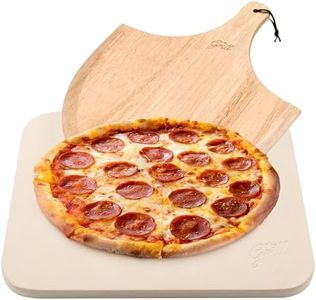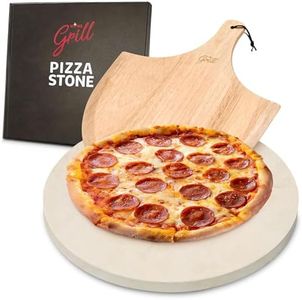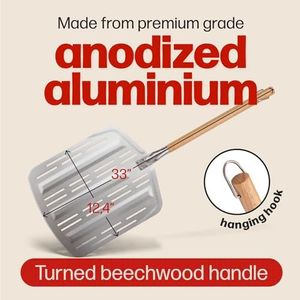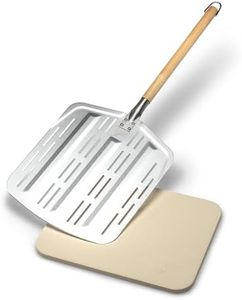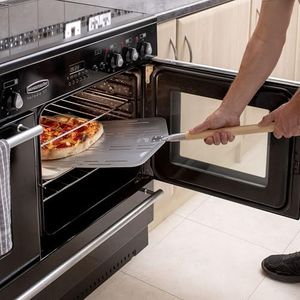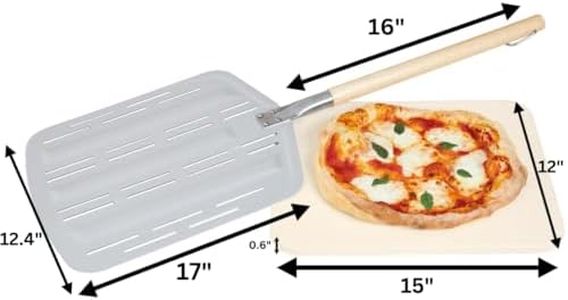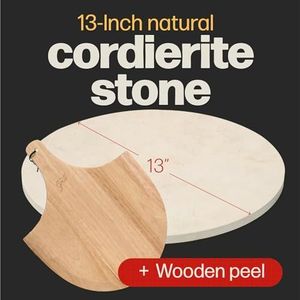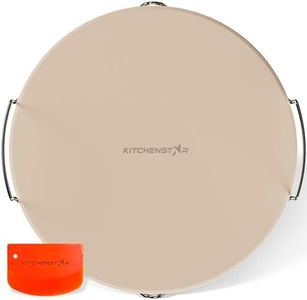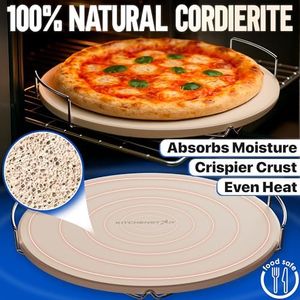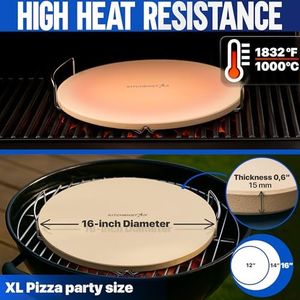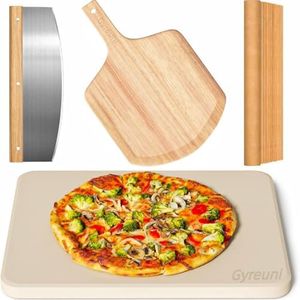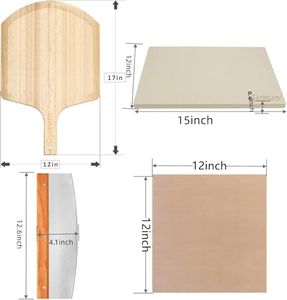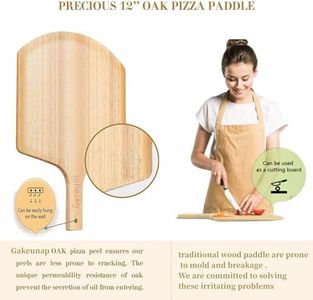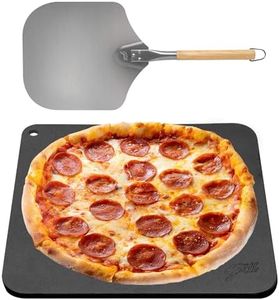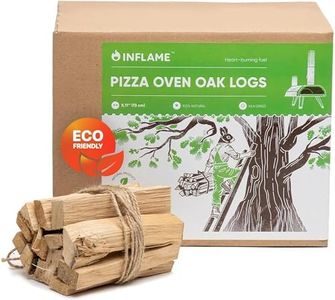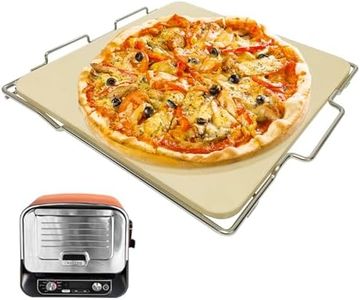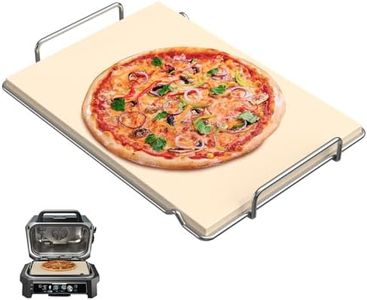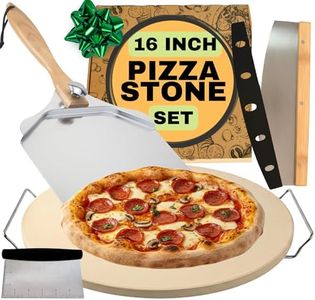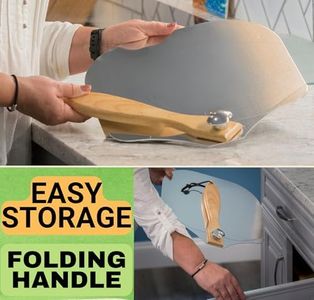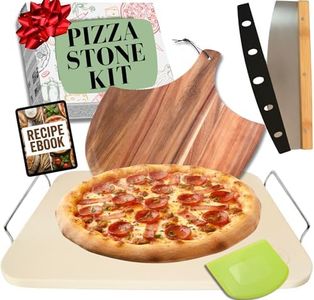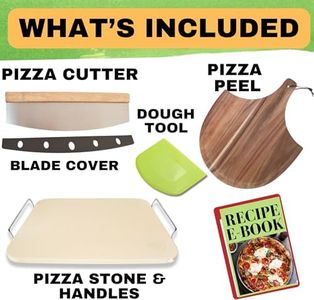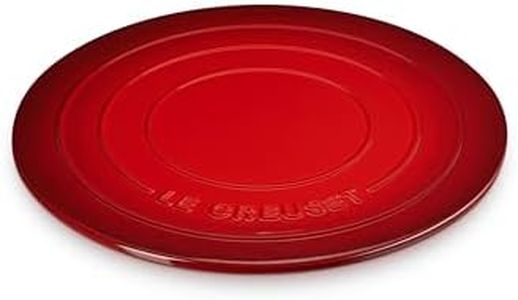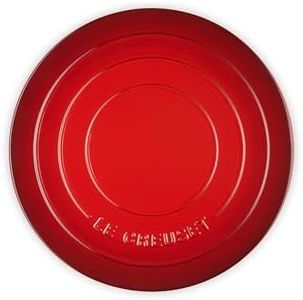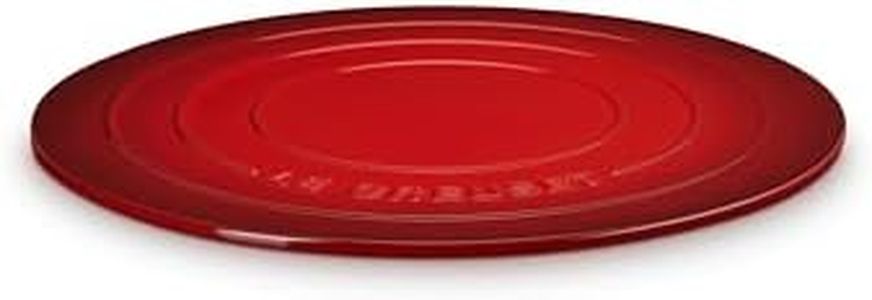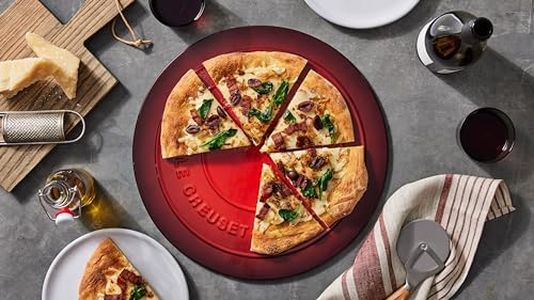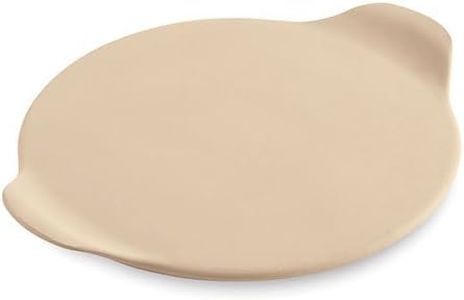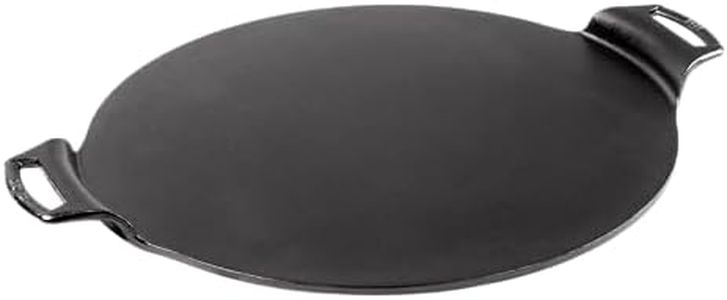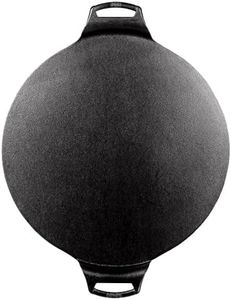10 Best Pizza Stones 2026 in the United States
Winner
Hans Grill Pizza Stone PRO XL Baking Stone For Pizzas use in Oven, Grill or BBQ FREE Long Handled Anodised Aluminium Pizza Peel | Rectangular Stone 15 x 12" Inches | For Pies, Pastry, Bread, Calzone
The Hans Grill Pizza Stone PRO XL is designed for people who enjoy making crispy, authentic-style pizzas at home using an oven, grill, or BBQ. Made from cordierite, a durable and heat-resistant material, it can handle very high temperatures up to 1112°F, which is great for evenly cooking pizza crusts to a crispy finish. Its rectangular shape and size (about 15 by 12 inches) work well for most home ovens and grills, giving you enough space for a large pizza or multiple smaller items like pastries and calzones. The stone is about 0.6 inches thick, providing good heat retention without being too heavy or hard to handle. This thickness helps cook your pizza evenly but doesn't take too long to preheat.
Most important from
13641 reviews
HANS GRILL PIZZA STONE | Rectangular Pizza Stone For Oven Baking & BBQ Grilling With Free Wooden Peel | Extra Large 15 x 12" Inch Durable Cordierite Cooking Stone.
The HANS GRILL Pizza Stone is a solid choice for anyone looking to enhance their pizza-making experience, whether indoors or outdoors. Made from durable cordierite, this rectangular stone (15 x 12 inches) is designed to withstand high temperatures, making it suitable for both oven baking and BBQ grilling. One of its key strengths is its ability to distribute heat evenly, which helps achieve a perfectly cooked crust. It’s also FDA safe and can tolerate temperatures up to 1112°F (600℃), giving you the flexibility to cook various types of dishes, from traditional Italian pizzas to artisan breads and pastries.
Most important from
13641 reviews
HANS GRILL PIZZA STONE | Circular Pizza Stone For Oven Baking & BBQ Grilling With Free Wooden Peel | Extra Large Round 15" Inches Diameter (38CM) Durable Cordierite Cooking Stone.
The HANS GRILL PIZZA STONE is a solid choice for anyone looking to bake pizza and other baked goods either in an oven or on a grill. Made from durable cordierite, it can handle very high temperatures up to 1112°F, which is great for achieving a crispy, evenly cooked crust. Its 15-inch round shape is extra large, fitting most home ovens and grills comfortably, and the 0.6-inch thickness offers good heat retention without being too heavy or bulky.
Most important from
13641 reviews
Top 10 Best Pizza Stones 2026 in the United States
Winner
Hans Grill Pizza Stone PRO XL Baking Stone For Pizzas use in Oven, Grill or BBQ FREE Long Handled Anodised Aluminium Pizza Peel | Rectangular Stone 15 x 12" Inches | For Pies, Pastry, Bread, Calzone
Hans Grill Pizza Stone PRO XL Baking Stone For Pizzas use in Oven, Grill or BBQ FREE Long Handled Anodised Aluminium Pizza Peel | Rectangular Stone 15 x 12" Inches | For Pies, Pastry, Bread, Calzone
Chosen by 1122 this week
HANS GRILL PIZZA STONE | Rectangular Pizza Stone For Oven Baking & BBQ Grilling With Free Wooden Peel | Extra Large 15 x 12" Inch Durable Cordierite Cooking Stone.
HANS GRILL PIZZA STONE | Rectangular Pizza Stone For Oven Baking & BBQ Grilling With Free Wooden Peel | Extra Large 15 x 12" Inch Durable Cordierite Cooking Stone.
HANS GRILL PIZZA STONE | Circular Pizza Stone For Oven Baking & BBQ Grilling With Free Wooden Peel | Extra Large Round 15" Inches Diameter (38CM) Durable Cordierite Cooking Stone.
HANS GRILL PIZZA STONE | Circular Pizza Stone For Oven Baking & BBQ Grilling With Free Wooden Peel | Extra Large Round 15" Inches Diameter (38CM) Durable Cordierite Cooking Stone.
KitchenStar 16-inch Pizza Stone for Oven and BBQ Grill with Handles, Round, 5/8" Thick - Natural Cordierite, 1800 °F Resistant, Baking Stone Set with Stainless Steel Rack & Plastic Scraper Tool
KitchenStar 16-inch Pizza Stone for Oven and BBQ Grill with Handles, Round, 5/8" Thick - Natural Cordierite, 1800 °F Resistant, Baking Stone Set with Stainless Steel Rack & Plastic Scraper Tool
4 PCS Rectangle Pizza Stone Set, 15" Large Pizza Stone for Oven and Grill with Pizza Peel(OAK), Pizza Cutter & 10pcs Cooking Paper for Free, Baking Stone for Pizza, Bread,BBQ
4 PCS Rectangle Pizza Stone Set, 15" Large Pizza Stone for Oven and Grill with Pizza Peel(OAK), Pizza Cutter & 10pcs Cooking Paper for Free, Baking Stone for Pizza, Bread,BBQ
Round Pizza Stone for Oven 16 inch - Large Pizza Stone with Handles, Metal Pizza Peel, Pizza Cutter and Dough Tool - Baking Stone for Oven Bread - Thick Durable Cordierite Baking Stones
Round Pizza Stone for Oven 16 inch - Large Pizza Stone with Handles, Metal Pizza Peel, Pizza Cutter and Dough Tool - Baking Stone for Oven Bread - Thick Durable Cordierite Baking Stones
Pizza Stone for Oven and Grill Set - 5PCS Pizza Making Accessories Kit - 15 inch Pizza Stone with Handles, Pizza Peel, Pizza Cutter, Dough Tool - Baking Stone for Bread - Large Rectangular Oven Stones
Pizza Stone for Oven and Grill Set - 5PCS Pizza Making Accessories Kit - 15 inch Pizza Stone with Handles, Pizza Peel, Pizza Cutter, Dough Tool - Baking Stone for Bread - Large Rectangular Oven Stones
Le Creuset Stoneware Round Pizza Stone, 15 in., Cerise
Le Creuset Stoneware Round Pizza Stone, 15 in., Cerise
The Pampered Chef Medium Round Stone with Built in Handles on the Sides
The Pampered Chef Medium Round Stone with Built in Handles on the Sides
Lodge Cast Iron Pizza Pan, 15 inch
Lodge Cast Iron Pizza Pan, 15 inch
Our technology thoroughly searches through the online shopping world, reviewing hundreds of sites. We then process and analyze this information, updating in real-time to bring you the latest top-rated products. This way, you always get the best and most current options available.


